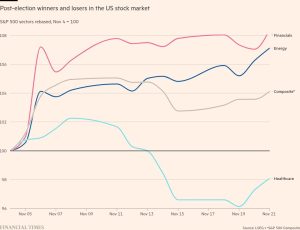New boss seeks to bring Naspers out of Tencent’s shadow
Unlock the Editor’s Digest for free
Roula Khalaf, Editor of the FT, selects her favourite stories in this weekly newsletter.
The new head of South Africa’s Naspers group will overhaul corporate culture and pay to meet an ambitious four-year target to double the market value of its investment arm Prosus, the biggest shareholder in Chinese internet giant Tencent.
Fabricio Bloisi, who runs both Naspers and Prosus, told the Financial Times: “I’m here to do the next Tencent”.
Naspers turned a 2001 investment of $32mn in what was then a start-up into a stake that is today worth $115bn. Prosus owns just under 26 per cent of China’s biggest gaming company. But the market value of Amsterdam-listed Prosus is around $105bn, in effect ascribing no value to its host of other global assets, from food delivery to payments businesses.
After years of management attempts to reduce the discount, including through stock buybacks funded by selling Tencent shares, Bloisi became chief executive in July with the prospect of a $100mn payday if he hits a $168bn market value target for Prosus by mid 2028, from its $84bn level in July.
“Prosus was not building the future as it could, and that’s what is going to happen,” said Bloisi, the former head of iFood, a Prosus-owned business that is the largest food delivery app by market share in his native Brazil.
The goal is to boost other businesses to equal or exceed the value of the company’s Tencent stake.
Bloisi will be paid the $100mn in Naspers and Prosus shares if the $168bn market value is maintained for a year. The deal also requires him to increase shareholder returns over the next four years to higher levels than at least half of companies in a “peer group” that includes Amazon, Meta, Uber, and SoftBank.
“I don’t think [Prosus] had a good performance in the last five years. Maybe that’s why they changed the CEO,” Bloisi said. “Many people were getting high compensation even if the company was not growing. For four, five years the share price was more or less stable.”
“I’m changing this a lot. Compensation has to be driven by results and the growth you create,” he added. “Not [just] for me, for everyone, for the whole company.”
Bloisi said his highest priority was to create a higher risk, higher reward entrepreneurial culture at Prosus, which employs 30,000 people.
“Prosus is not innovative enough. I think Prosus is not taking risks enough,” he said. Top managers, he said, needed to think more like founders of technology companies who are not only disruptive but intensely focused on results that are linked to their pay.
Bloisi’s $100mn potential payout was called “excessive and disproportionate” last month by Dutch fund manager PGGM, after Naspers’ controlling stake in Prosus meant the deal was approved by shareholders.
The one-off award would be more than the previous chief executive of Naspers and Prosus was paid throughout his entire nine-year tenure.
Before he stepped down as CEO in 2023, Bob van Dijk listed Prosus as the owner of the Tencent stake and broke a taboo on selling the Chinese company’s shares.
While Bloisi said he is still committed to the Tencent investment, he suggested that previous management had not been fully incentivised to move Naspers out of its shadow.
However, the Tencent stake is included in the market value target, which Prosus is already on the way to hitting partly because of the rally in the Chinese company’s shares since July.
Investors and analysts have said that Bloisi’s market value-based target and his background at iFood mean he may expand Prosus through acquisitions, particularly in the fragmented food delivery sector.
Bloisi is paid an annual salary of $750,000 plus short-term incentives worth another $750,000 if he hits certain financial and operational targets, including cutting the group’s share discount.
#boss #seeks #bring #Naspers #Tencents #shadow






